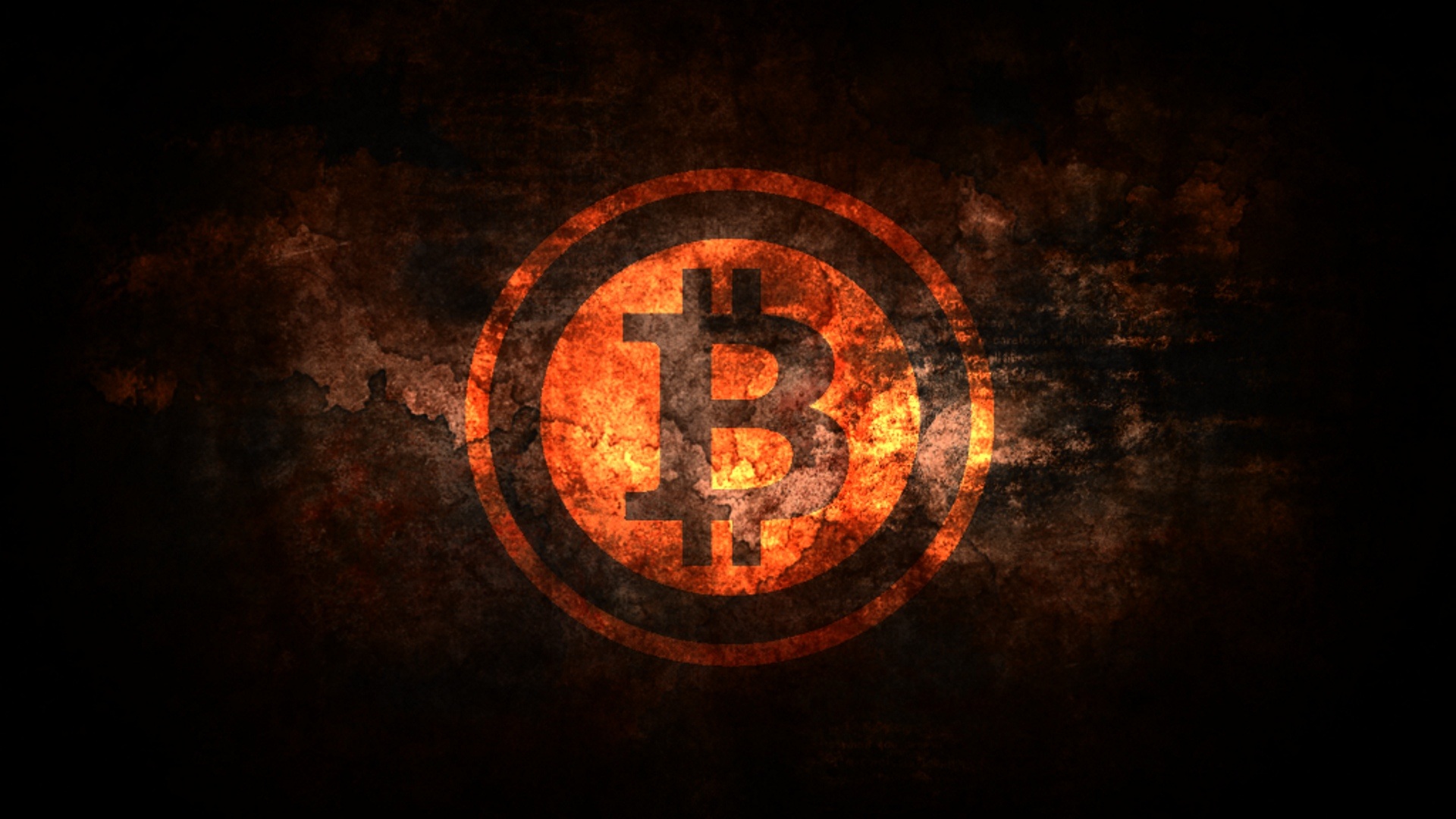In today’s world, new technologies spread like wildfire. Many of them will never see the light of day or, at best, will provide fertile ground for the development of other ideas and concepts. Will blockchain turn out to be a flash in the pan? Everything suggests quite the opposite. After all, blockchain has the potential to upend the key pillars of society.
Cryptocurrencies
Most people know very little about cryptocurrencies. Those who’ve heard the term tend to think that cryptocurrencies, such as bitcoin, are merely virtual money or a web-based transaction system. In fact, money is only the tip of the cryptocurrency iceberg. What bitcoin is principally is a pioneering Internet technology. Its use as a means of exchange is only one possible application. Over the centuries, trade has become tremendously complex, its sophistication reaching new heights in the age of globalization. Today, anyone can sell anything to anyone anywhere in the world. With a slight change of perspective, a transaction comes across as pure information. For now, such information is isolated and available exclusively to a small group of transacting parties. Transactions are validated and settled through third parties – middlemen whose contributions rarely exceed sending and confirming deals. Such intermediaries include banks, accountants, notaries public, state governments, financial institutions, individuals and dedicated fiduciary organizations. For now.
Fiduciary institutions in the new world
The nature of blockchain technology is to maintain a shared collective digital ledger of transactions distributed in identical copies to multiple computers all across the web. The ledger is accessible to anyone and fully secured with sophisticated encryptions. A user can only view his/her own transactions. Relying on blockchain prevents any bitcoin from being duplicated, the transactions are public, and their entire history, from the very inception of the bitcoin network to the present, can be viewed in block explorers. A chain of blocks serving as a transaction ledger cannot be counterfeited, as the number of bitcoins is capped and will never exceed a predetermined limit. The transactions encoded in a blockchain are permanent and indelible. Work is currently under way to use blockchains as a banking ledger, a document authentication system, a digital signature in a state administration and for document notarization. All such transactions may be performed outside of the age-old system, without the involvement of fiduciaries, directly between transaction parties.
Successive transaction blocks
A blockchain records and stores all transactions, complete with a timestamp and the number of parties to every transaction. Every node in the network (of which there are tens of thousands) holds a complete copy of the blockchain in the form of a transaction ledger. Using complex mathematical and cryptographic principles, transactions are validated by so-called bitcoin miners, who are additionally responsible for creating new bitcoins and ensuring their fixed number in the network. The mathematical principles also ensure that network nodes automatically and continually validate transactions and transaction ledger records. If someone tries to cheat, alter an existing transaction or enter an unauthorized deal, blockchain nodes will, in the validation and reconciliation process, discover the single copy of the ledger whose transaction is inconsistent with the transaction record in the network and refuse to add it to the blockchain. Every transaction is public. Thousands of nodes unanimously agree that a given transaction took place on day X at time Y. It is much like having a trusted notary public oversee every transaction. As a result, all parties to a transaction have access to a common source of true and verified information.
Protections and fraud-proofing
A new block appears in the blockchain every 10 minutes on average. Blocks are arranged to follow one another. Each contains a package of unique data on concluded transactions. An attempt to modify one block changes the entire chain down the line. Signed in such a way, a block cannot be counterfeited given today’s technology and computational power. This guarantees the uniqueness of every block and transaction as well as their permanence. The philosophy behind blockchain, advanced mathematical methods and cryptographic protections make the data contained in the transaction ledgers trustworthy. This makes the blockchain technology incredibly appealing to banks and public administration. Documents and bookkeeping records stored in this way are safe against any attempts at counterfeiting or tampering.
Transaction diversity
Transaction ledgers can be used to store any transaction types in any currency. Be it a currency, property, real estate or shares. It is up to the users to decide what a given bitcoin unit represents. Every bitcoin is divided into 100 million individually identifiable and programmable parts. This means that users may ascribe diverse properties to each individual unit. The user can program a bitcoin to be eurocents, company shares, kilowatt-hours of energy, election votes, loans or digital ownership titles. Therefore, bitcoin is a whole lot more than just money and a means of settlement. One can also program bitcoin to behave as needed. Bitcoins may self-cancel on a specified date or automatically return to the owner if the receiver fails to satisfy prescribed terms.
For instance, a business may control its spending on wages, development, machine or supplies purchases by designating each bitcoin up front for a specified purpose. This has the potential to substantially cut red tape, eliminate much accounting work, reduce the number of controllers and save time by streamlining the entire organization.
Threats and opportunities
The programmable open nature of bitcoin will help completely overhaul the financial sector. What is more, some of its supervisory and settlement functions may become superfluous. Commercial processes and information exchange will become more transparent, faster and considerably less expensive, relieved of the cost of maintaining the world’s entire financial system.
Will this really happen? I believe so, but then don’t forget that the foundation of bitcoin and the cryptocurrency, the blockchain, is only in its infancy. Fiduciary institutions such as banks, stock exchanges and financial transaction intermediaries are aware of its great potential, but also realize the threat it poses to the status quo. Bitcoin will open up new markets to financial institutions but will also alter their status. If the financial sector fails to adapt in time, any institutions unprepared for these new realities will be replaced by new ones, not all of which will come from the emerging FinTech industry.
Related articles:
– End of the world we know, welcome to the digital reality
– What is blockchain? All you need to know
– What are the bitcoins? All you need to know
– Work of the future – reinventing the work
– On TESLA and the human right to make mistakes
– Sagrada Familia and the Internet of Things
– Blockchain – the ultimate financial crash










Tom Jonezz
If anybody has any doubts about the adoption of the DLT, just look at some of the recent headlines:
“The National Stock Exchange of India is trialing a Hyperledger-based blockchain platform to conduct e-voting for listed companies”
“Telecoms giant AT&T has announced a suite of blockchain solutions for enterprise customers”
“Austria’s government will use an Ethereum-based blockchain notarization service to issue €1.15 billion ($1.35 billion) of government bonds in a Federal Bond Auction next week”
Oscar2
Blockchain is immutable. Reality: Blockchain uses immutable data structures. You might want to clarify how those 2 opposing statements (back to back) are both true.
Please do read our response to this great article!
https://gospel.tech/mckinsey-gospel-blockchain-beyond-the-hype/
johnbuzz3
By linking credentials to individuals, individuals and assets to corporate entities we can create unique cryptographic identification tagging to tradable instruments. Wrapped within a permissioned based privacy friendly security layer it will allow association of people and assets within a hostile environment (such as a public Blockchain running on the internet). This will allow authorized parties to utilize mathematical forensics to trace the chains of ownership yet prevent regulatory snooping. Some will argue that this is a only on-ledger work effort but even ledger work requires on-ramp, off-ramp, data updates, and linked data to off ledger sources.
Tom Jonezz
The democratized nature of blockchain technology gives it the transparency & security as far as the storage & processing of transactions is concerned. Since most the networks work with some kind of consensus mechanism, manipulation of any kind is rare.
TomHarber
Blockchain technology is decentralized by design. It lacks centralized points of vulnerability that can be easily exploited by hackers, and depends on encryption technology in the place of the conventional username-password security system. A user accesses his account through a randomly generated private key. Another feature to take note is that it is transparent, as it is a public record of activities that can be seen by all participants. It has the capacity to automatically update itself every ten minutes and reconciles any transaction that occurred within that time interval.
johnbuzz3
On the distributed ledger technology (DLT), the entire lifecycle of a trade “including its execution, clearing and settlement” can occur at trade level, lowering post-trade latency and reducing counterparty exposures
Oscar2
I would not claim that blockchain is 100% secure. It is secure taking into consideration current state of technology and knowledge. For example, the quantum computers can change the rules across the blockchain space. What is more, if someone, let’s theoretically say a genius is hiding in a basement somewhere in the Northern Siberia, finds a methodology to decipher the currently used hashing functions (sha256 and sha512 being two most recognized), the blockchain as a reference data proof machine will be invalid.
Of course, these are only theoretical considerations, but still, I would not crawl into the narrative of the absolutes.
What makes me wonder is stating that blockchain is better than the traditional databases; it is not, it is different. It has the entirely different purpose of existence. Secondly, in the first sentence, the article is noting that Bitcoin is just one iteration of blockchain (cryptocurrency network), while the author is referring to the Proof-of-Work type consensus which is strictly linked to the two largest cryptocurrencies: Ethereum and Bitcoin.
Jack23
Blockchain != Bitcoin
Bitcoin == Blockchain
You can do a lot more with the Blockchain technology of immutable records (which it essentially boils down to). Unfortunately, due to poor programming there have been lost a great number of records (in this case cryptocurrency) in the past, because those records were no longer valid.
So, please nobody tell anyone that
a) This is safe to use
b) There can be no error
c) This is the “currency” of the future
Because all of the above is simply and plainly incorrect.
It is not safe, because it is not regulated (no oversight) and bad programming can/will result in you being broke in 10, if you use cryptocurrency.
Of course there can be errors. Mainly for ther reasons above (no oversight) and entire “chains” can be “lost in space” because their backtracking was diluted and/or not properly kept.
Again Blockchain != Bitcoin. Bitcoin aka Cryptocurrecy is the first use of the Blockchain technology (of immutable records). This was mainly (my personal view) to get rich quick on the inventor’s side.. The Blockchain technology is a great way to keep records i.e. for who owns which real estate and to whom was it sold, but it is far from “complete” or “error free”.
Use with caution. You have been warned!
Norbert Biedrzycki
Recent deveolopment on bitcoin: German central bank warns people not to buy bitcoin as price skyrockets: http://snip.ly/k7clc
AndrewJo
Since the 2008 financial crisis, twenty of the world’s largest banks including JPMorgan, Citibank and HSBC have paid over US$235 billion in fines
DDonovan
Bitcoin has similarities to currencies, as well as commodities like gold — since there’s a limited number, it could be considered a scarce resource. Bitcoin is not a stock, it’s not a bond, it’s not a hard asset like precious metal, it’s not a commodity future. It’s a technology that’s very much in its infancy.
Tom Jonezz
Any information once recorded on a blockchain can’t be changed which adds another layer of security to the data on the network thus making it immutable. Also, there are improved algorithms being developed as we speak which make it very difficult to hack into the systems or launch a DDoS attack.
Mac McFisher
Ethereum is now the second largest cryptocurrency after bitcoin in terms of market cap. It dislodged Litecoin from its previous position to take up the top spot among altcoins. Ethereum hit a major milestone reaching a market cap of 1 Billion US Dollars. Ethereum has enjoyed explosive growth since announcement of the “Homestead” beta phase of development, with a 22% jump in active nodes in a single day, and steady growth since. Reaching this critical milestone puts Ethereum at a not insignificant percentage of Bitcoin, which holds the highest Market Capitalization at 6.3 Billion.
Jacek B2
What about other alts? There is hundreds of them
Karel Doomm2
What does “peer-to-peer, decentralized, append-only database” mean?
You probably know what a “database” is. Some people say it is sort of like an Excel spreadsheet. In the case of Bitcoin, the spreadsheet contains information about Bitcoin Wallets, which are like bank accounts.
“Append-only” means it is a database that you can add information to it, but you can never change the information that was added to it, and you can never take information away. This is important because you don’t want people cheating by changing information in the past to make it look like you have more Bitcoin money than you actually bought.
“Decentralized” means copies of the database exists on many, many different computers, and all of these computers can append information to the database. When new information is appended, the new information is copied to all of the computers.
“Peer-to-peer” means the database is not owned by any one company or person. Anyone can create a copy of the database and use the network. Everyone who has a copy of the database and connects to the network is an owner of the database.
Basically, blockchains are a technology, and like all other technologies, it can be used to solve various problems. Bitcoin is just one place where a blockchain is used.
Also, in my opinion, Bitcoin and crypto-currency is a waste of time and electricity, and I don’t think it will be very valuable for very long, it will probably suffer an economic crash in the near future. However the blockchain technology for Bitcoin is very interesting.
JohnE3
It can not be concealed that blockchains and cryptocurrencies are new and conservatives tend to celebrate such inventions with a wide arc, but there are many wealthy people who are very interested in this technology, because even if it enables being anonymous. Even Bill Gates himself admitted to having BTC during one of the interviews. And the Winklevoss brothers and their investments in the crypto? For 10-20 years, cryptocurrencies may forget and maybe conquer the world like email or the internet.
Norbert Biedrzycki
Established banking industry is pouring money into blockchain technology far faster and more steadily, and a likely target of $$400 million during 2019.
DDonovan
Blockchain has enormous potential also in many other segments, not only finances. Smart Contracts, which are based on the blockchain ethereum protocol, can help in the disgustingly complex system of settlements between the streaming platform and the artist. There are many blockchains – practically every cryptocurrency is a different blockchain. There are many applications for Fintech, banking, supply chain. This is definitely a huge future. And all in all it’s simple enough that a distributed and secure database.
Norbert Biedrzycki
Very correct
TomK
Smart Contracts as a container for the execution of financial business transactions. These containers need stronger security and identity to assure all parties are known, trusted. Existing business models can be coded into Smart Contracts to accelerate the value of money.
Tom Jonezz
CTL use case for city municipalities: Local businesses & Property owners can apply for all sorts of licenses & permits digitally, improving the efficiency of the local government while cutting the processing time for the users significantly. Smart contracts can also be used to implement secure voting platforms, which would prevent tampering & double voting while assuring accurate compilation of results. The City-state of Dubai is getting ready for such an implementation— digitizing of all its services including visa applications, bill payments & license renewals which account for more than 100 million documents each year. All these records will now be securely transacted using a blockchain.
CabbH
Exactly this! The only way to control the country and the people is to have a control over that people’s money. Simple as that! That’s why I don’t see banks ever attaining the full freedom from any government in this world.
Heck, I even think that countries will start wars before they lose control over money!
Norbert Biedrzycki
Thank you. Hopefully it will not end up in a conflict
DDonovan
My vision of blockchain is as an instrument that came to resolve the problem of monopoly. It can help to hold the honest voting in countries. It’s not the people who vote that count, it’s the people who count the votes. Thanks to blockchain technology it is not possible to erase the vote or change it. What’s more, it can influence the healthcare industry and resolve the energy issues.
John Accural
In financial services, chains of custody of a financial instrument is deeply regulated territory. This chain of custody is a very costly legacy process. The only way to speed this up is to securely & privately embed chains of identity/ownership into the very process. So, without proper Identity it will be possible for bad actors to continue to create the same chaos thats occurring today. You will need to be securely authenticated with the system and have the proper access controls to the information.
TomK
Surelly BTC already exists to a certain extent – but it still has a long way to go before it becomes a stable, scalable global currency system for all of us. Internet is a major enabler of bitcoin/ blockchain , although bitcoin will probably be able to function in the future without internet. Who knows?
Check Batin
Rising question of a security? Each bitcoin client hard codes a list of what are called DNS seeds. These are domain names that when queried in DNS, return a reliable, well connected bitcoin node. The first time you start a node, it queries a number of these DNS seeds and connects to these nodes. Then it asks the node for a list their peers. The client tries to keep a geographically diverse set of connections (based on IP blocks), and writes the IPs of the best of these to disk. The next time it starts up, it can seed itself from this list and connect to other nodes, once again asking them for their peers. If it can’t connect to any, it falls back to the DNS seeds again.
TomCat
Im certain that bitcoins on blockchain technology could help banks become more efficient and save costs. Slowly but surely, banks are starting to realize and embrace the potential of blockchain for financial services. Will it crash the system? Hopefully 🙂